
China Cove, © Jerome Freedman
Introduction
Compassionate listening and loving speech are the foundations of our sharing practice. As mindfulness deepens awareness of our experience we find new ways to enhance our own well-being. We become able to transform our suffering and find freedom in the present moment.
I will try to record all sessions, in case something comes up for you and you have to miss a session. They will appear after each session in the schedule below along with a guided meditation that you can download or listen from your computer. This schedule is subject to change session by session and the times listed are approximate.
I want to do ten to fifteen minute meditations in these classes in order to make time for the talk and discussion. You are encouraged to practice at home for at least 9 minutes a day. Some practices are suitable for children as you will see later.
All classes will be held on Zoom and this is the zoom link for all sessions (Meeting ID: 734 777 397). Please plan to arrive on time at 7:00 PM. If possible, please have your video on so we can see you. At the end of the class, you will be asked to fill out a student evaluation form to be submitted to the Mindfulness Meditation Teacher Certification course.
Session 1 – Loving Kindness
Recording for Loving Kindness
Practice phrases
- May I be safe and protected
- May I be happy
- May I be healthy and strong
- May I live with ease
Instructions
Practice the above phrases for people in each of these categories:
- Self / benefactor (or someone you deeply love
- Benefactor / self
- Dear friend
- Neutral person
- Difficult person
- All beings
Quotes
Quote number 8144
The four immeasurables are variously known as the “abodes of Brahma” (brahmavihara), divine abidings, heavenly abodes, or the four sublime or excellent states. They are excellent because, in their manifestation, they are limitless. They are sublime because they point to the most wholesome, most loving, most affirming way of relating to others and ourselves.
– Vanessa Zuisei Goddard
Quote number 4392
The Buddha taught the following to his son Rahula
“Rahula, practice loving kindness to overcome anger. Loving kindness has the capacity to bring happiness to others without demanding anything in return.
Practice compassion to overcome cruelty. Compassion has the capacity to remove the suffering of others without expecting anything in return.
Practice sympathetic joy to overcome hatred. Sympathetic joy arises when one rejoices over the happiness of others and wishes others well-being and success.
Practice non-attachment to overcome prejudice. Non-attachment is the way of looking at all things openly and equally. This is because that is. Myself and others are not separate. Do not reject one thing only to chase after another.
I call these the four immeasurables. Practice them and you will become a refreshing source of vitality and happiness for others.”
– Thich Nhat Hahn, Old Paths White Clouds
Quote number 8456
And Sharon Salzberg, again, in this book Real Love, tells a story when she was first practicing metta as in intensive practice, going, OK, may I be peaceful, may I be happy, may I be filled with love, her metta phrases, on and on. She said, “It felt very mechanical and nothing was happening.” And she was doing it over and over. And then she was on her way to go downstairs, maybe to meet with the teacher. And she dropped the tray that she was carrying with these things on it, and glass shattered on the floor and all this stuff. And she said to herself, “Sharon, you’re such a klutz,” which is what she usually said in her mind. “Sharon, you’re such a klutz, but I love you.” And then she said, “Oh, it’s working.”
– Jack Kornfield
“Kindness is the language which the deaf can hear and the blind can see.”
– Mark Twain
“This meditation teaches us to be kind and gentle by cultivating a positive relationship with ourselves and the rest of the world.
– Valerie Mason-John
Session 2 – Compassion for Self and Others
Recording for Compassion
I apologize for the late start of the above recording.
Here is another compassion meditation that I offered on December 1, 2022 to my peer group in MMTCP.
Practice Phrases
Self-Compassion
May I take refuge in myself
May I be well
May I be kind to myself and others
May I accept my life as it is
Compassion for Others
May you take refuge in yourself
May you be well
May you be kind to yourself and other sentient beings
May you accept your life just as it is
Quotes
Quote number 394
Seeing Our Oneness
Because compassion is a state of mind that is itself open, abundant, and inclusive, it allows us to meet pain more directly. With direct seeing, we know that we are not alone in our suffering and that no one need feel alone when in pain. Seeing our oneness is the beginning of our compassion, and it allows us to reach beyond aversion and separation.
– Sharon Salzberg, “A Quiver of the Heart”
Quote number 5563
Love is a mind that brings peace, joy, and happiness to another person. Compassion is a mind that removes the suffering that is present in the other. We all have the seeds of love and compassion in our minds, and we can develop these fine and wonderful sources of energy. We can nurture the unconditional love that does not expect anything in return and therefore does not lead to anxiety and sorrow.
– Thich Nhat Hanh, Peace is Every Step
Quote number 8998
The three components of self-compassion – kindness, common humanity, and mindfulness – take on a particular form when we turn toward our pain with tenderness.
- Kindness manifests as love. When our hearts are open, we can warmly embrace whatever arises in our experience with gentleness and care.
- Recognition of common humanity provides a sense of connection. By remembering that everyone experiences pain – that no one is perfect or leads a trouble-free life – we don’t feel so alone.
- Mindfulness gives us the perspective needed to present with what is, rather than contracting in fear or shame.
– Kristin Neff
Links
Session 3 – Sympathetic Joy
Recording for Sympathetic Joy
Quotes
Note: the following quote was the basis for our guided meditation this week.
Quote number 6411
Look around you for examples of good things happening to other people. It can seem hard to find because of the negative bias of our news sources, but if you search a little you can find good news. When you do, allow yourself to feel gladness and joy for the good fortune of those people. Share in the appreciation and gratitude. You can only feel appreciative joy when you see or think about the success of others, so look for it.
– Andrew Olendzki
“Sympathetic joy arises when one rejoices over the happiness of others and wishes others well-being and success.”
– Thich Nhat Hanh
Quote number 6411
When lovingkindness encounters the good fortune and happiness of another, it transforms into appreciative joy. This is the emotion of feeling good for another person, of being glad that good things are happening for them. Appreciative joy arises easily for the people we care about, but so often its opposite “some form of jealousy, envy, or resentment” comes up for us. The antidote for these forms of discontent is learning how to feel good for others, which generally takes a lot of practice.
– Andrew Olendzk
Session 4 – Equanimity
I’m sorry to report that I neglected to turn on the recording until the meditation at the end of the session. You can easily understand what equanimity is from the quotes, below. I plan to make a recording of the talk and insert it here when it is ready.
Equanimity Talk Re-Do
I recorded this talk this afternoon and tried to make it as good as the one last night. This is the best of the three attempts and I don’t think they match up close to the actual talk. Nevertheless, the talk is here.
Guided Meditation Recording
Practice Phrases
These phrases will help you cultivate equanimity.
May I open to this moment just as it is
Things are just as they are right now
May my heart be at ease with the conditions of my life
All beings meet their joys and sorrows according to their own actions
As much as I would like things to be different, things are the way they are in this moment
May I open to the flow of joys and sorrows with understanding and equanimity
All beings (all of us) have our own journeys
Things are as they are.
I can be with things as they are.
I handled this with strength, with equanimity
Things are as they are and I could be with things as they were
I may not like these things, and that’s okay.
They may not be what I want, but I can be with them.
I have the capacity to be with life as it is.
Quotes
Quote number 14
Equanimity
Equanimity has the capacity to embrace extremes without getting thrown off balance. Equanimity takes interest in whatever is occurring simply because it is occurring. Equanimity does not include indifference, boredom, coldness, or hesitation. It is an expression of calm, radiant balance that takes whatever comes in stride.
– Shaila Catherine,”Equanimity in Every Bite”
Quote number 5647
Gratitude
Of all the teachings of Father Eli and Zen Master Thich Nhat Hanh I think that the teachings on gratitude had the most significant effect on my life. Ever since I started practicing gratitude, my life has become better and happier. I began to have a feeling of inner peace and equanimity. Appreciating what I have has given me the freedom from desiring possessions which only take up space and cost money.
– Jerome Freedman, Mindfulness Breaks: Your Path to Awakening
Quote number 257
Like a Mountain
The practitioner’s mind is likened to a mountain that the winds can’t shake; he’s neither tormented by the difficulties he may come across nor elated by his successes. But that equanimity is neither apathy nor indifference. It’s accompanied by inner jubilation, and by an openness of mind expressed as unfailing altruism.
– Matthieu Ricard
Quote number 1651
An Unbiased Mind
According to the Buddha, the way to bring about equanimity is wise attention: to be continually mindful from moment to moment, without a break, based on the intention to develop equanimity.
– Sayadaw U Pandita, Accepting What Is
A deeper equanimity comes when we learn how to be with our life as it is, not as we would like it to be.
– Eliot Fintushel, “Something to Offer ”
Quote number 7478
Mettā is the heart of love turned towards the good qualities of ourselves or another being, and compassion is the heart of love turned towards suffering. Mudita is the heart of love turned towards the good fortune of others, and equanimity is the heart of love turned towards wisdom.
Equanimity is the heart of love that is able to hold the truth of suffering; the truth of change, the unfathomable workings of karma, and able to be with the fact that we’re not able to control circumstances all the time. It’s the heart that’s able to hold all of these things and to love anyway.
Equanimity is not the same as indifference. It’s just love with a lot of space. That space makes it a sustainable kind of love, and one that’s very useful for challenging times.
– Kate Johnson
Do you have a suggestion for what you would like to see on this page? If so, click here.






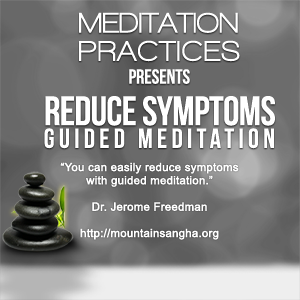
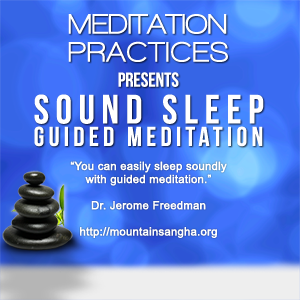
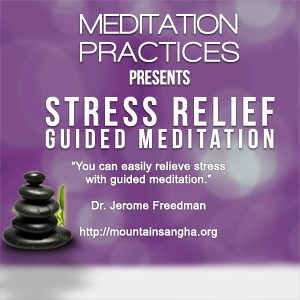
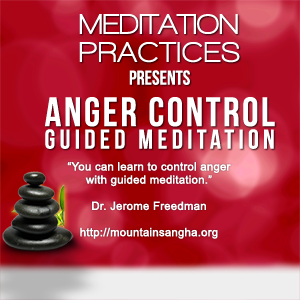
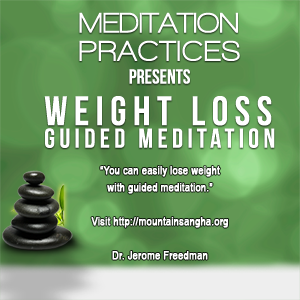
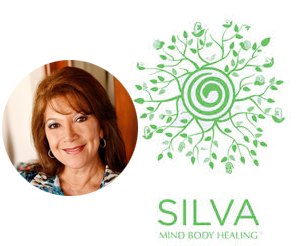
You must be logged in to post a comment.